“An injured brain isn’t always logical.”
|
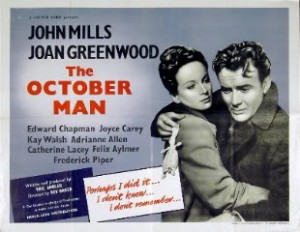
Synopsis:
A brain-injured man (John Mills) suffering from PTSD feels renewed hope for the future when he falls in love with a caring, beautiful young woman (Joan Greenwood) — but when he’s falsely accused of murdering a neighbor (Molly Newman), he must struggle to clear his name and convince police about the true identity of the killer.
|
|
Genres:
- Falsely Accused
- Joan Greenwood Films
- John Mills Films
- Roy Ward Baker Films
Review:
Roy Ward Baker’s directorial debut — based on a novel and screenplay by Eric Ambler, who also produced the film — remains an intriguing if mildly disappointing exploration of the effects of trauma on one’s sanity and well-being. After a taut opening sequence — during which Mills’ “Jim Ackland” witnesses the death of his friend’s young child (Juliet Mills) in a train crash while sustaining a significant brain injury — we experience brief joy on his behalf as he slowly begins to find peace and happiness, then suffer with him as he’s cruelly taken advantage of by both a vicious gossip (Joyce Carey) and a sociopathic boarder (Edward Chapman). The parallels between Jim’s story and those of countless other WWII veterans suffering from PTSD are unmistakable and poignant — so it’s especially frustrating to find that the pacing and tone of the film become far too leisurely for the potentially gripping material. Atmospheric cinematography and fine performances (by Mills and the supporting cast) make it worth a one-time look — but, as noted by Craig Butler in his All Movie Guide review, “There’s so much that’s good about The October Man that it’s a shame it doesn’t end up as a really good film, rather than a merely satisfactory one”.
Redeeming Qualities and Moments:
- John Mills as Jim Ackland
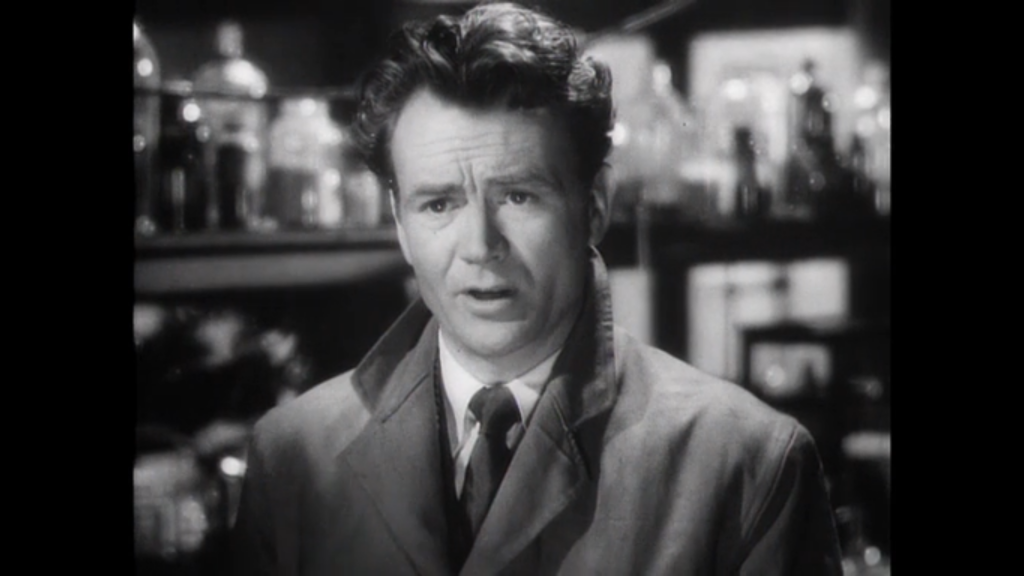
- A fine supporting cast
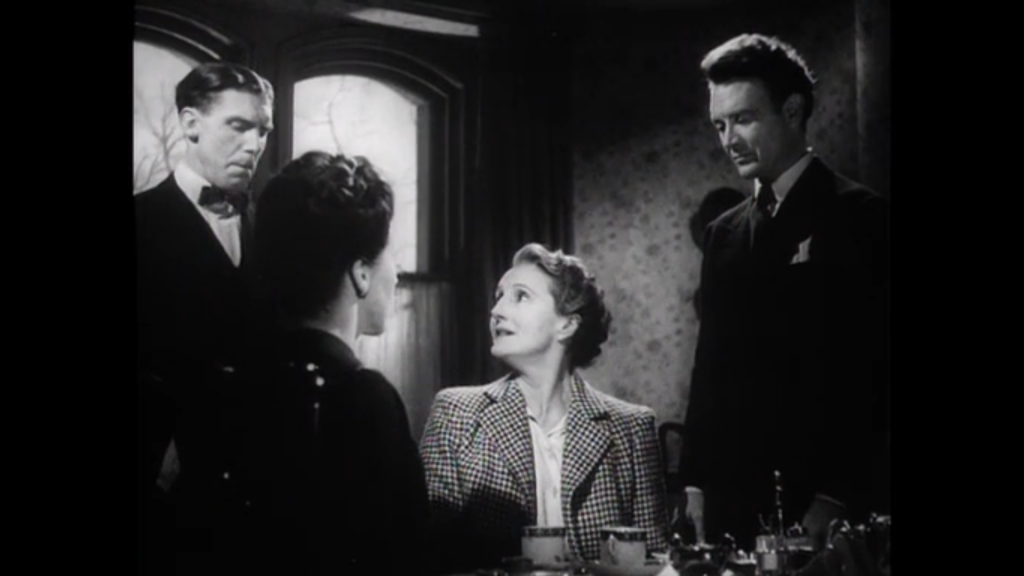
- Erwin Hillier’s noir-ish cinematography
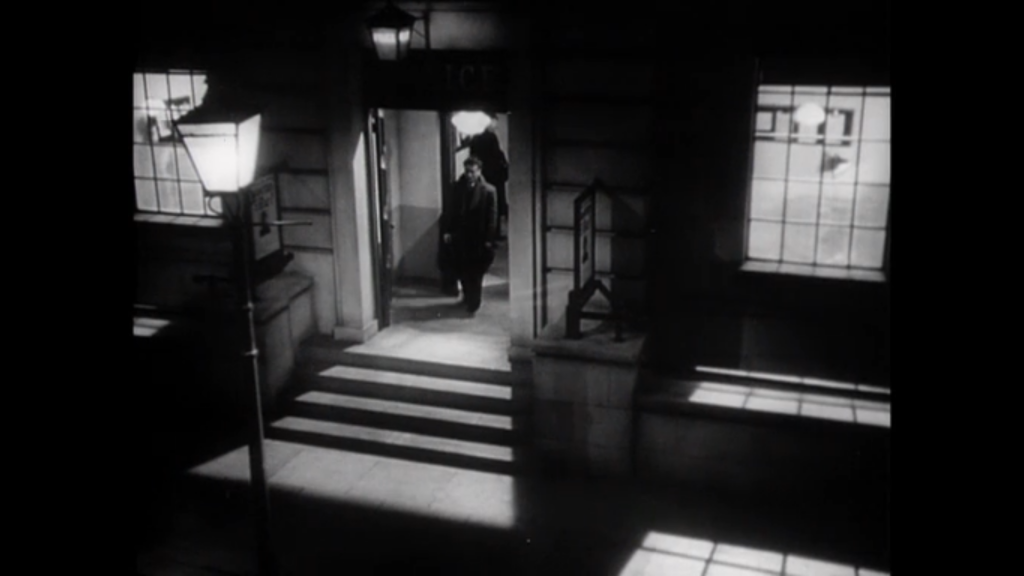
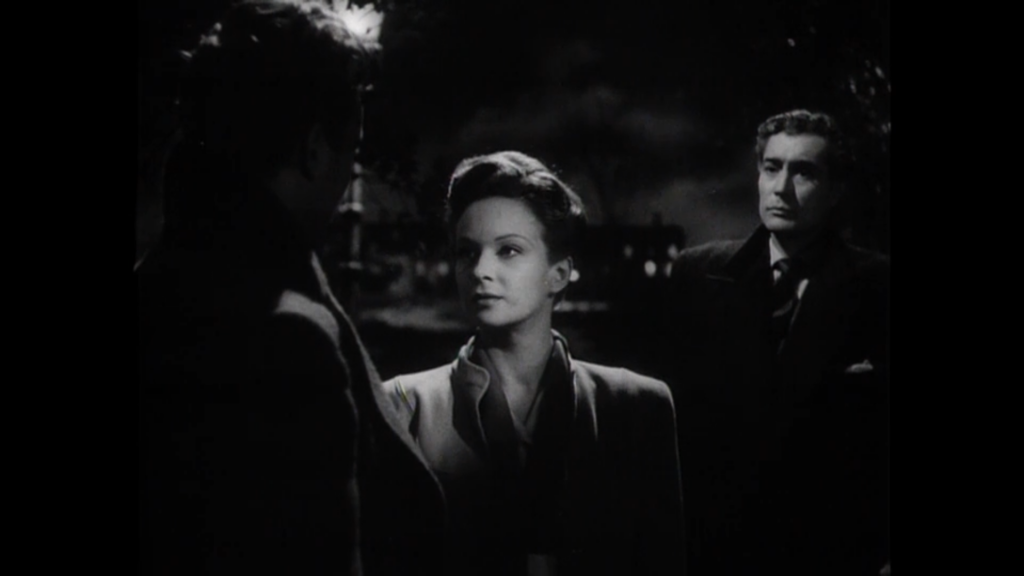
Must See?
No, though it’s recommended.
Links:
|
One thought on “October Man, The (1947)”
First viewing. Not must-see, and in agreement with the review. [Bit of a spoiler ahead.]
This is a disappointing film indeed. I’d been looking forward to seeing it, mainly since I generally like the director’s other films. But a director can only do so much with his material if it is on the weak side. After a rather promising start, ‘TOM’ begins to unravel from within and its potential does indeed progressively evaporate. (The plight of those suffering from PTSD is more effectively dealt with elsewhere – esp. as it relates to war veterans, most memorably in Huston’s doc ‘Let There Be Light’.)
Worst of all, its nature as a whodunit is feeble. Normally, I’m not the type who tries to keep one step ahead of a mystery story; I prefer to just let the story be told rather than analyze much as information comes to me. But here…it’s rather easy to detect early on exactly what is going on behind Mills’ back and why.
I would go one step further than Mr. Butler: it’s a shame that a film with intriguing elements ends up being hardly satisfying at all and more or less forgettable.
Side note: The aspect of gossip and suspicion among boarders put me in mind of the film of Terence Rattigan’s ‘Separate Tables’, in particular – tho gossip and suspicion in close quarters is hardly uncommon in film.